Jamie Fejo stands outside a house at the Ilpeye Ilpeye town camp on the edge of Alice Springs.
The Arrernte and Larrakia man grew up here, but he’s shocked at what’s happening to the place he loves.
“It’s a disgrace,” he says.
“They’re running amok, walking the streets, breaking and entering, making us Aboriginal people look bad.”
As night falls in Alice Springs, dozens of children, some as young as seven, can be seen wandering the streets.
Locals say it’s been quiet this week after Prime Minister Anthony Albanese came to visit.
On some nights, they say, up to 200 children will be on those streets.
Fejo says most of the people causing trouble are not from Alice Springs.
They live in Indigenous communities surrounding the town and are travelling in, often in search of alcohol.
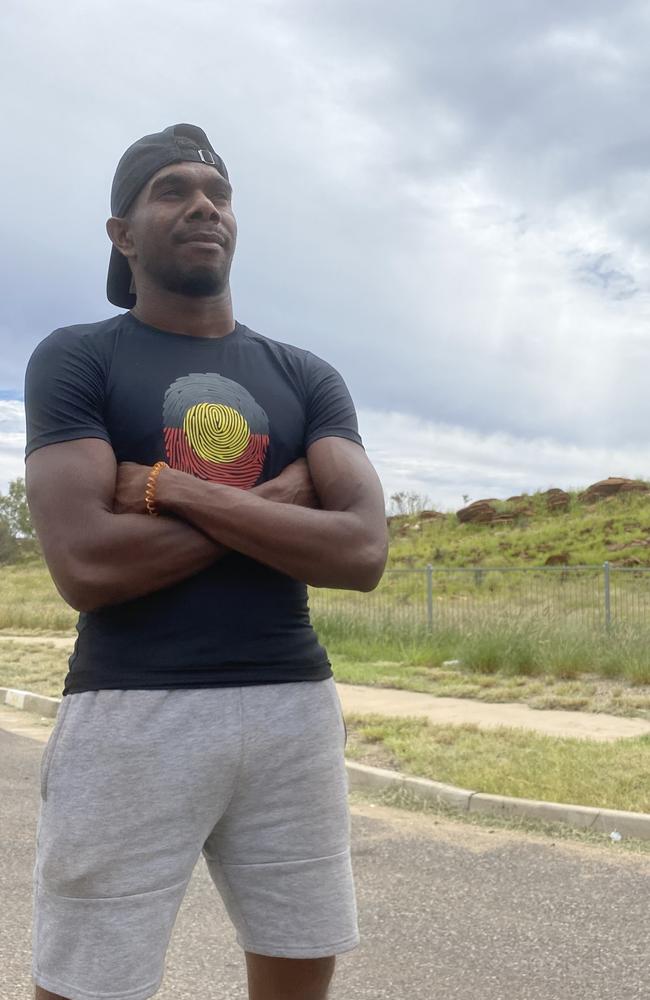
“It’s making us look like fools,” he says.
“We’re the owners of this land because we’re Arrernte people you know.
“For them to walk the streets without permission from the elders and camping and staying in Alice Springs, I don’t know, it’s just a big disrespect for our country as well.”
Crime rates have been rising fast in Alice Springs for the past three years.
Police have attributed a spike in 2021 to the Morrison Government’s decision to double welfare payments during Covid-19 and allow early access to superannuation.
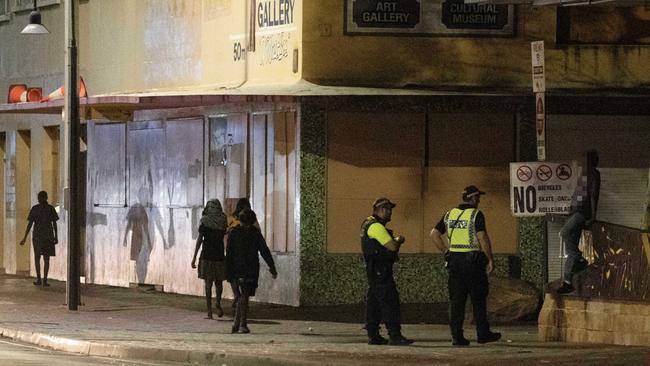
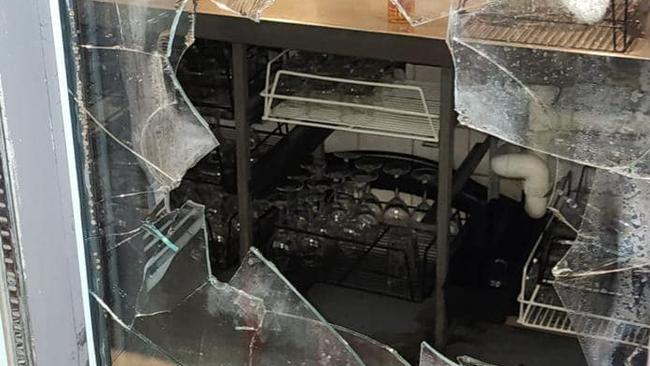
Police Commissioner Jamie Chalker has said bottles of Bundaberg Rum were selling on the black market for up to $700 during this period.
When the extra payments ended, there was a subsequent increase in property crime.
But Alice Springs community leaders say the bigger issue was a change to alcohol policy in July last year.
In 2007, the Howard Government Northern Territory Emergency Response – better known as the Intervention – banned alcohol in hundreds of smaller Indigenous communities, homelands and town camps in Darwin, Katherine, Tennant Creek and Alice Springs.
Those bans were extended under Federal Labor’s Stronger Futures legislation in 2012. But when that legislation expired on July 17 last year, the alcohol was allowed back in.
Most of the bigger Indigenous communities, including those surrounding Alice Springs, were not affected by the change.
They had been dry before the Intervention under the Northern Territory Liquor Act and remained so after Stronger Futures expired.
But according to health experts and community leaders, the decision to allow alcohol to return to town camps has been catastrophic.
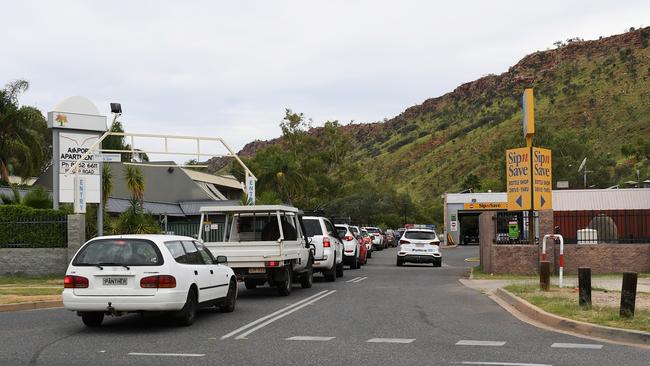
Buying take-away alcohol is never easy in the Northern Territory.
Every customer must produce a valid form of identification to prove they are fit to make a purchase.
People who commit offences while intoxicated are placed on a banned drinker register, preventing them from buying takeaway booze.
In Katherine, Tennant Creek and Alice Springs, there are also police auxiliaries who stand at bottle-shops checking customers’ identification.
If you can’t prove you have a valid address at which you plan to consume your alcohol, you can’t make a purchase.
Lifting the alcohol bans has meant people living in the town camps can now buy takeaway grog.
But it also means relatives who travel in from communities that remain dry can humbug others to buy alcohol for them.
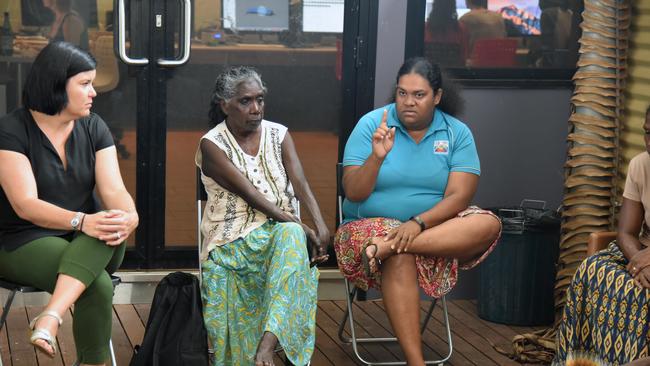
The Northern Territory and federal governments were repeatedly warned the changes would have disastrous consequences.
Most expected the NT government would extend alcohol bans in the town camps and communities for at least two years while alcohol management plans were developed.
Instead, it implemented an “opt-in” policy, where alcohol was returned to the communities and town camps immediately, unless they “opted-in” to remain dry.
Two of the NT’s Alice Springs-based federal politicians – Labor’s Lingiari MP Marion Scrymgour and Country Liberal Party Senator Jacinta Price – used their maiden speeches in parliament to warn of an impending disaster.
“When a government puts a protective regime of that kind in place and leaves it in place for that long, you can’t just suddenly pull the pin on it without any protection, sanctuary or plan for the vulnerable women and children whom the original measure was supposed to protect,” Ms Scrymgour said.
“To do that is more than negligent; at the level of impact on actual lives, it is tantamount to causing injury by omission.”
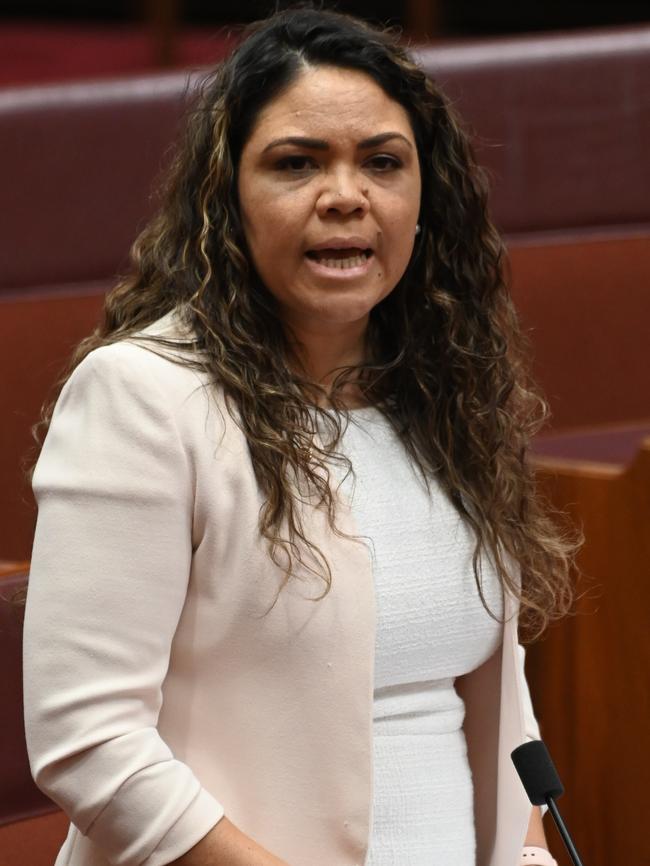
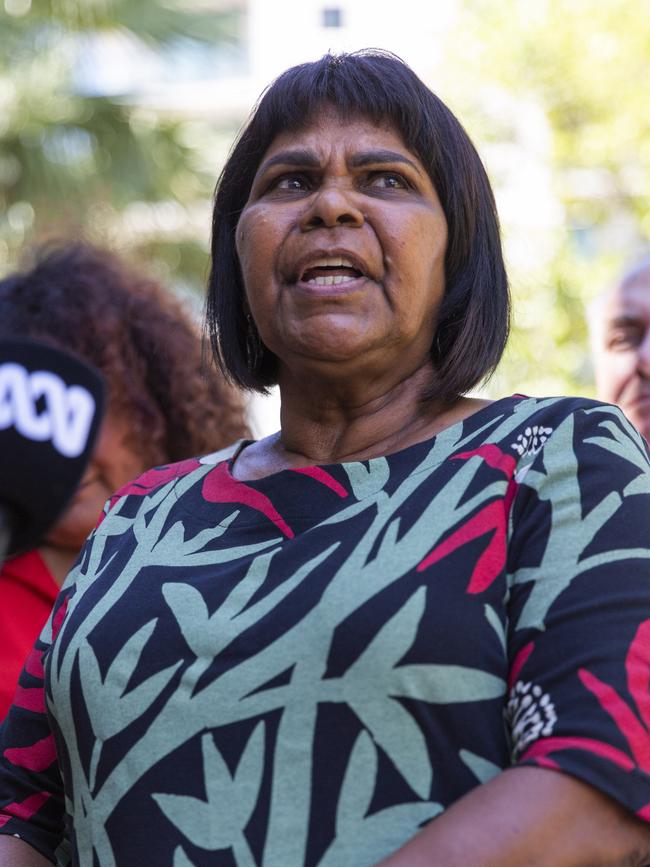
The Central Australian Aboriginal Congress – the biggest Aboriginal healthcare provider in Central Australia – also urged the NT government to reconsider its decision.
But no-one listened. For more than six months, Northern Territory Chief Minister Natasha Fyles refused to budge.
She and her cabinet colleagues said the bans were part of a “race-based policy” that her government wanted no part of.
It was a line the Chief Minister was sticking to, even as Anthony Albanese was about to arrive in Alice Springs on Tuesday, after the town’s crime crisis became the biggest story in the country.
The Alice Springs crime figures were through the roof. Property damage was up 60 per cent in the 12 months to last November. Commercial break-ins were up 56 per cent, alcohol-related assaults had risen by 55 per cent and domestic-violence related assault was up 54 per cent.
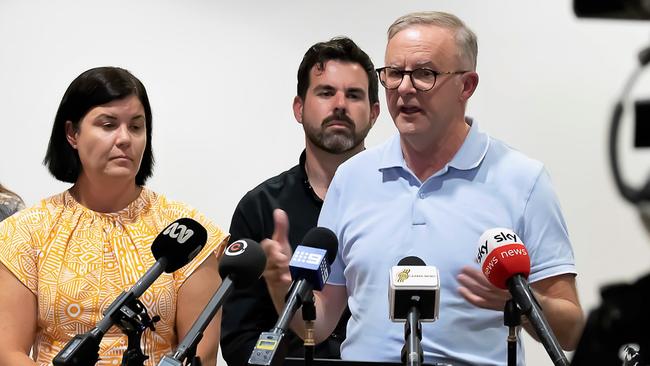
The town’s police couldn’t keep up. Neither could the hospital.
A doctor, who spoke on the condition of anonymity, said staff were overwhelmed by the volume and severity of the injuries they were having to treat.
“In the time I’ve been working here I’ve never seen the violence as bad as it is,” he said.
“It’s extreme violence. We had a patient in here the other night who tried to decapitate his wife and he cut his own throat. We had both of them in. I’ve never seen anything like it.”
A special police operation was launched at the beginning of December. More than 300 arrests were made in seven weeks.
When a 13-year-old boy walked into a supermarket on January 15 armed with a machete, mayor Matt Paterson had had enough.
He called for the Australian Defence Force to be sent in. Pressure soon mounted on the Prime Minister to act, and by 2pm on Tuesday he had landed in Alice Springs.
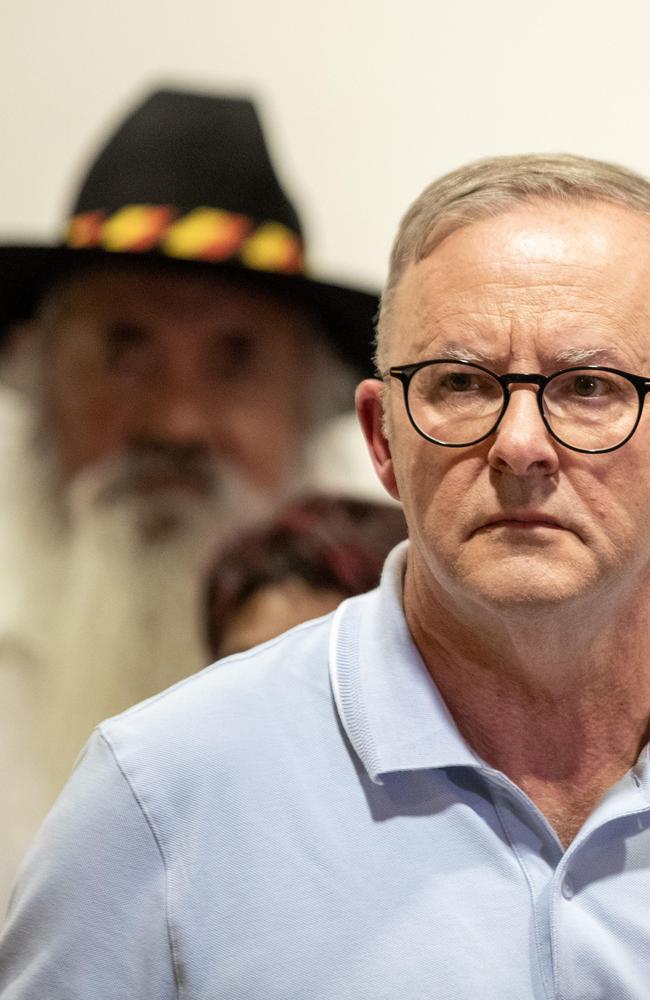
Albanese met with members of the Northern Territory Government, police and Mr Paterson for three hours.
They emerged to announce strict alcohol restrictions. Takeaway alcohol sales have been banned on Mondays and Tuesday and restricted to between 3pm and 7pm on other days.
And the decision to lift the alcohol bans on communities and town camps is under review.
It could be reversed as soon as this week.
Christine Davis, an Arrernte woman who lives at Ilpeye Ilpeye town camp, is urging the Prime Minister to reinstate the bans. She says there was an instant increase in problems when the bans were lifted, with visitors bringing grog into the camps.
“It was all right before with the restrictions and everything but soon as the Intervention finished it’s just got bad from day one,” she said.
She said the Prime Minister needed to “turned the tap back down a bit and send people back to their community”.
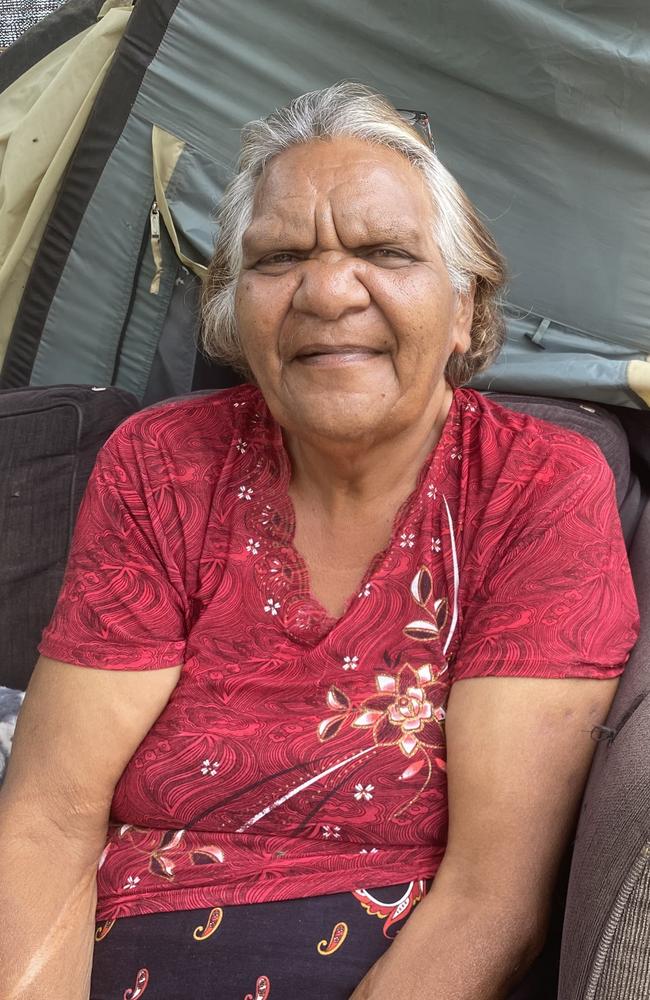
But she also questioned why there were no plans to improve programs and facilities in remote communities.
Business owner Darren Clark, who has run a three-year Facebook campaign trying to highlight the town’s crime crisis, says the failure of governments to properly invest in remote communities was now wreaking havoc on the streets of Alice Springs.
He said Albanese and Fyles had made “token announcements” on Tuesday, committing more money to “programs that don’t work”.
“How about you spend the money in the bush, get these people an economy in the bush, get them jobs,” he said.
“They’ve got no hope, you can train them all you like but they haven’t got a job out there, because governments keep failing on economic development in remote communities and they wonder why they migrate to the towns like Alice Springs.
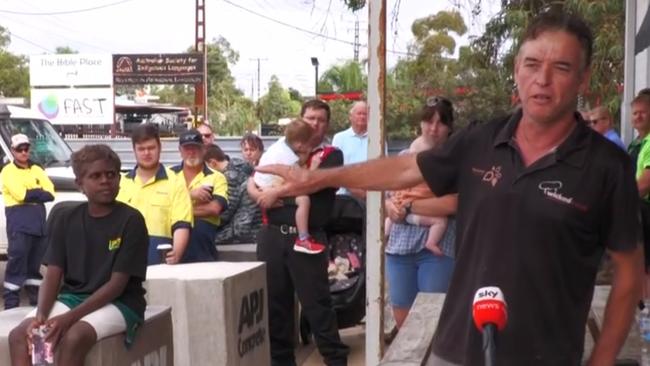
“How about you work for a race of people who have been suppressed and disadvantaged for too long.
“The money never trickles down to the people that matter, on the ground.
“There’s no extra food in communities, there’s no extra health services in remote communities. Half the police stations on remote communities are empty.
“Try and ring the police on a remote community. You’re lucky if the line even works.”
Back at Ilpeye Ilpeye town camp, Jamie Fejo worries all Aboriginal people in Central Australia are being blamed for this crisis.
“It’s just a big discrimination that’s going on in Alice Springs,” he says.
“Because the kids are walking on the streets they’re making us look bad. The good people, you know.”
Matt Cunningham is the Sky News Northern Australia Correspondent

Stacked: How first home buyers can ‘turbocharge’ their chances
First home buyers are repeatedly being outbid for homes they can actually afford, with 20 per cent reporting they had missed out on at least three properties. Here’s how to get on the property ladder.
Youth justice tops packed agenda as parliament returns
From animal welfare to drink driving and youth justice – here’s what Territory politicians will debate as parliament reconvenes this week.